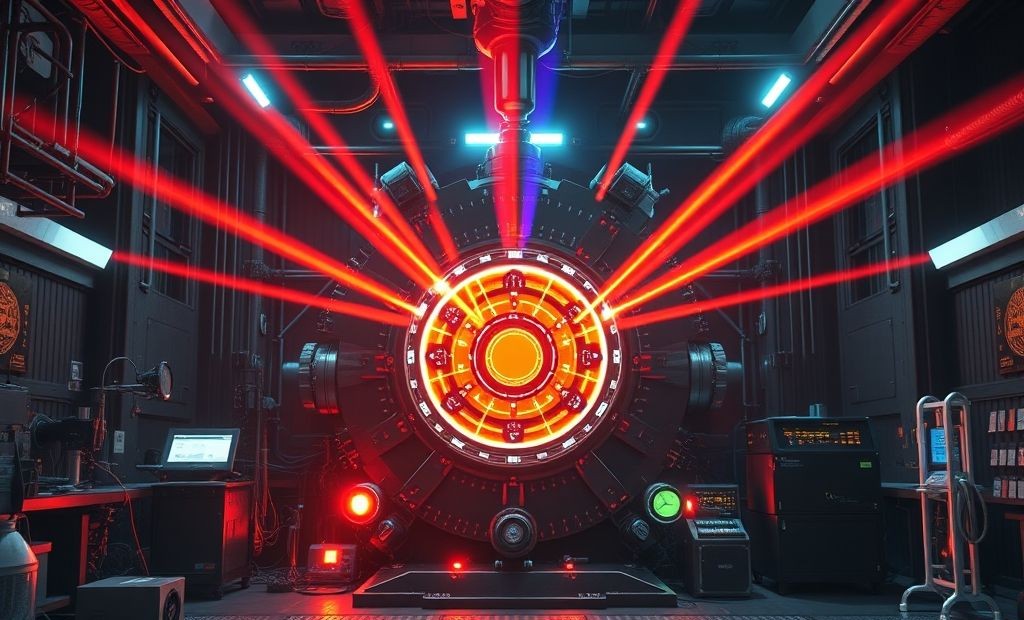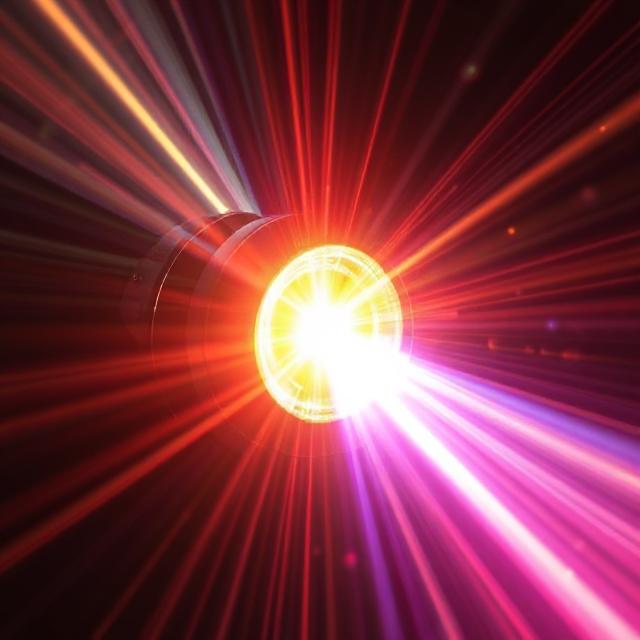Fusion Power Achieves Breakthrough:

Laser Fusion Leaps Forward with Doubled Power Output Exciting developments in fusion energy have emerged from the National Ignition Facility (NIF) in California. Recent experiments...
⏱️ Estimated reading time: 3 min
Latest News
Laser Fusion Leaps Forward with Doubled Power Output
Exciting developments in fusion energy have emerged from the National Ignition Facility (NIF) in California. Recent experiments have more than doubled previous energy outputs, marking a significant step toward practical fusion power.
🔬 Record-Breaking Fusion Output
In a recent experiment, NIF achieved a fusion energy yield of 8.6 megajoules (MJ) from a 2.2 MJ laser input. This results in a gain factor of approximately 3.9, nearly doubling the previous record of 5.2 MJ from February 2024. lasers.llnl.gov
These advancements build upon the December 2022 milestone, where NIF first achieved ignition by producing 3.15 MJ from a 2.05 MJ input. Subsequent experiments have consistently improved energy yields, demonstrating steady progress in fusion research. Time
⚡ Implications for Clean Energy
Fusion energy offers the promise of a nearly limitless, clean power source. The recent successes at NIF bring us closer to realizing this potential. However, challenges remain in scaling these experiments for commercial energy production.Science News Explores
While the fusion reactions have achieved net-positive energy output, the overall system efficiency, considering the energy required to operate the lasers and facility, still needs improvement. Reddit
📚 Learn More
For an in-depth look at the latest fusion experiment and its implications, read the full article on TechCrunch:
🔗 Laser-powered fusion experiment more than doubles its power output

Understanding Laser Fusion
Laser fusion, also known as Inertial Confinement Fusion (ICF), is a process that uses powerful lasers to compress and heat a small amount of fuel, typically isotopes of hydrogen, until it undergoes nuclear fusion. This process releases a tremendous amount of energy. The challenge lies in achieving sustained fusion reactions that produce more energy than the lasers consume. Learn more about Inertial Confinement Fusion and the technology that is making this future possibility.
Key Improvements and Results
The experiment’s success is attributed to several key improvements in laser technology and target design. By increasing laser power and optimizing the fuel target, researchers were able to achieve a significantly higher energy yield. These results validate theoretical models and provide valuable data for future experiments. According to one research, the process has more than doubled in power output, promising more future advances. Visit Laser Technology for more.
Implications for Future Energy
The progress in laser fusion research holds tremendous promise for addressing global energy challenges. Fusion energy offers a clean, sustainable alternative to fossil fuels, with the potential to provide a virtually unlimited source of power. While significant challenges remain, including achieving sustained fusion and reducing costs, this breakthrough brings us closer to realizing the dream of fusion energy. If you are interested in learning more about the technology, visit Sustainable Energy
Related Posts
Bluesky Enhances Moderation for Transparency, Better Tracking
Bluesky Updates Moderation Policies for Enhanced Transparency Bluesky, the decentralized social network aiming to compete...
December 11, 2025

Google Maps: Gemini Tips, EV Charger Predictions & More!
Google Maps Gets Smarter: Gemini Tips & EV Updates Google Maps is enhancing user experience...
December 9, 2025

US, UK, Australia Sanction Russian Web Host
Crackdown on Russian ‘Bulletproof’ Web Host The United States, United Kingdom, and Australia have jointly...
December 6, 2025











Leave a Reply